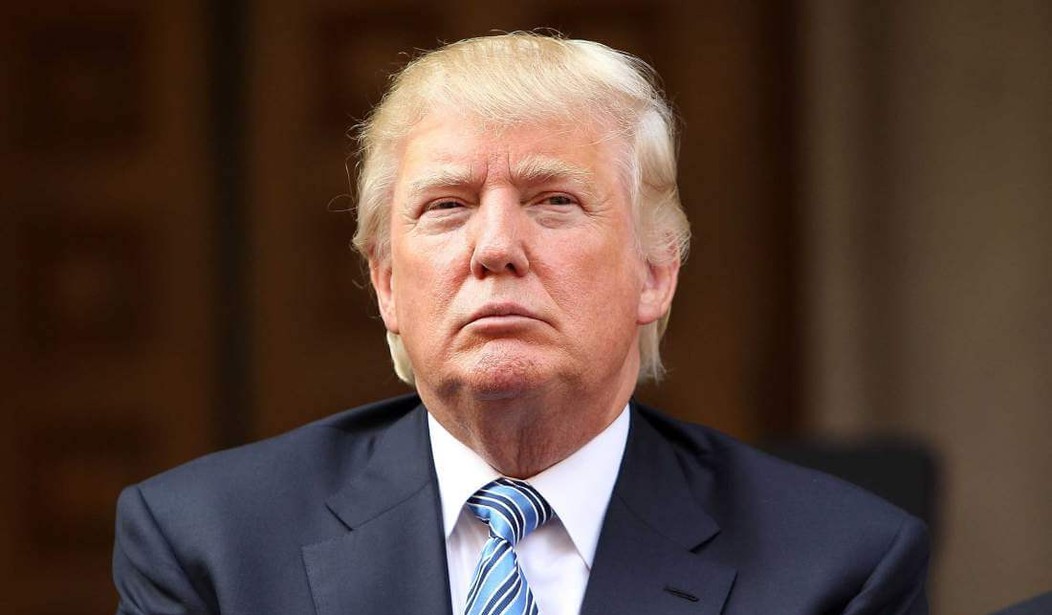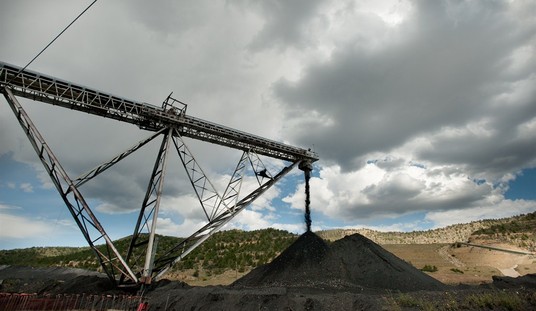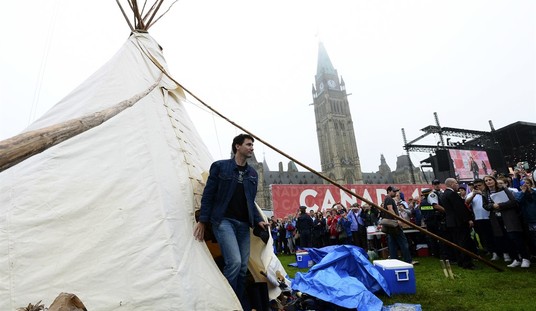It is a nice detail that Joseph-Michel Montgolfier, he of the hot-air balloon frères, believed that contained within the hot smoke that lifted his creations was “a special gas, which he called Montgolfier Gas, with a special property he called levity.”
Donald Trump is a sort of hot-air dirigible whose sudden and unexpected rise has astonished multitudes and whose special gas might well be called “levity.”
One thing to note about hot-air balloons is that, though they are colorful and wow the crowds when they first appear, they are notoriously difficult to control and their buoyant “levity,” so captivating on the way up, tends to expire with hazardous rapidity.
I first wrote about Donald Trump in this space back in July when everyone and his brother was tut-tutting about what a vulgar buffoon he was. Between us, he is a vulgar buffoon, but that is neither here nor there. He is also an astonishing political showman. The way he dispensed with Hillary Clinton’s charge of “sexism,” neutering Bill as political asset in the process, was a marvel to behold. He tried the same thing with Ted Cruz — birthergate, loangate, New-York-Valuesgate — but it’s my sense that, after an initial wobble, Cruz has weathered the assault unscathed or at least unfazed. The proof, I suppose, will be in a pudding called Iowa.
Back in July, I noted that Trump had “raised some issues that the high and mighty dispensers of conventional wisdom would do well to ponder. Moreover,” I continued,
he has done it in a way that, though terribly, terribly vulgar, is catapulting Trump to first place in the polls. What does that tell us? That the people are stupid and need to be guided by the suits in Washington? If you believe that, I submit, you are going to be profoundly disappointed come November 2016.
I still think that’s correct. But I also continue to think, as I said back then, that Donald Trump will not win the Republican nomination and, if by some chance he does win it, he will lose the general election. I believe that in part because I suspect that there is a big difference between Trump fans, who are boisterous and plentiful, and Trump supporters, who I suspect are far thinner on the ground. Again, the Iowa caucus on February 1, while by no means definitive, will offer some measurable sense about the depth of Trump’s support.
There are two astonishing things to bear in mind when contemplating Trump’s continued levity above the parade ground of this primary season. One is the lemming-like rush of certain precincts of the Republican establishment to Trump’s side. I wrote about that a week or so back in a column called “Why the Sudden Love Among Establishment Republicans for Trump?” I’m not sure, frankly, whether the term “establishment” is very helpful in the context of Donald Trump, for all the reasons Jonah Goldberg set forth with characteristic perspicacity in his recent National Review column “The Establishment vs. the Conservatives.” The billionaire real-estate developer, casino owner, and reality TV host is not so much anti-establishment as he is an establishment jester. But I think the reason for the sudden shift towards Trump on the part of the Beltway has as much to do with Ted Cruz as with Trump. As Rush Limbaugh put it, the GOP establishment hates Trump, but they fear Cruz. They are right to do so, because were he elected the gravy train that is business-as-usual in Washington really would come screeching to a halt. But were Donald Trump elected, the deals would proceed as before, they would just be consummated with more bluster. Trump would change nothing about the essential metabolism of Washington. The same corrupt show would go on, but it would proceed with more gilt, rhinestones, and plunging necklines.
The second astonishing thing to bear in mind about the Trump phenomenon concerns his grass-roots support. I am told by knowledgeable observers that that support is quite narrow, confined mostly to certain cadres of white males, and that it does not balance out his remarkably high negatives. But the curious thing about that support is that it flourishes mostly among people who consider themselves conservatives. It does no good to point out that Trump is anything but a conservative. His entire career has been a paean to left-wing causes from abortion, to Obamacare, to bank bailouts and intrusive government control. But as Mark Steyn observed a couple of days ago, that doesn’t matter. Why? Primarily because conservatives — or perhaps I should say “conservatives” in scare quotes — have consistently, time after time, disappointed their natural constituency. “One party is supposed to be the party of big government,” Steyn notes, “the other the party of small government. When the Big Government Party is in power, the government gets bigger, and, when the Small Government Party is in power, the government gets bigger.”
Yep. And it’s the same all over:
One party is supposed to be the party of social liberalism, the other the party of social conservatism. When the Socially Liberal Party is in power, the country gets more liberal, and, when the Socially Conservative Party is in power, the country gets more liberal.
One party is supposed to be the party of foreign-policy doves, the other the party of foreign-policy hawks. When the doves are in power, America loses wars, and, when the hawks are in power, America loses wars.
Just a couple of days ago National Review ran a special “anti-Trump” issue. More than twenty prominent conservatives — from Glenn Beck and (writing in 2000) William F. Buckley Jr. to Rich Lowry, Thomas Sowell, and L. Brent Bozell III — weighed in against Trump. There were many palpable hits, especially on Trump’s dangerously incoherent views on national security (Andrew C. McCarthy and former Attorney General Michael B. Mukasey), but I am not sure what difference it will make. For the moment, anyway, Trump occupies that empyrean of seeming invulnerability that occasionally cloaks movements of ecstatic enthusiasm. Point out Trump’s past support for Hillary, for Obama, for Chuck Schumer and Nancy Pelosi, mention his abuse of eminent domain to grab private property for his casinos, and his acolytes will respond, “He just did what he had to do to make his business succeed.” Couldn’t John Gotti have said the same thing? Again, it doesn’t matter.
At least, it doesn’t matter now. It will. I suspect that the best historical parallel for the Trump phenomenon is encapsulated in the title of Charles Mackay’s classic Extraordinary Popular Delusions and the Madness of Crowds. Mackay was writing about such curiosities as Tulipomania in 17th-century Holland, when a single bulb could, briefly, be traded for the price of a mansion, or various money or stock schemes like the South Sea Bubble or the Mississippi Scheme or the (perhaps more pertinent in this case) “the popular admiration for great thieves.” A common thread of these admonitory tales is the giddy rapidity of ascent followed by sudden and cataclysmic collapse once the spell is broken, which it always is. Montgolfier Trump is currently aloft and riding high. It’s only a matter of time until the bubble bursts and he plummets to earth. How much time? That, alas, is beyond my powers of prediction.









Join the conversation as a VIP Member